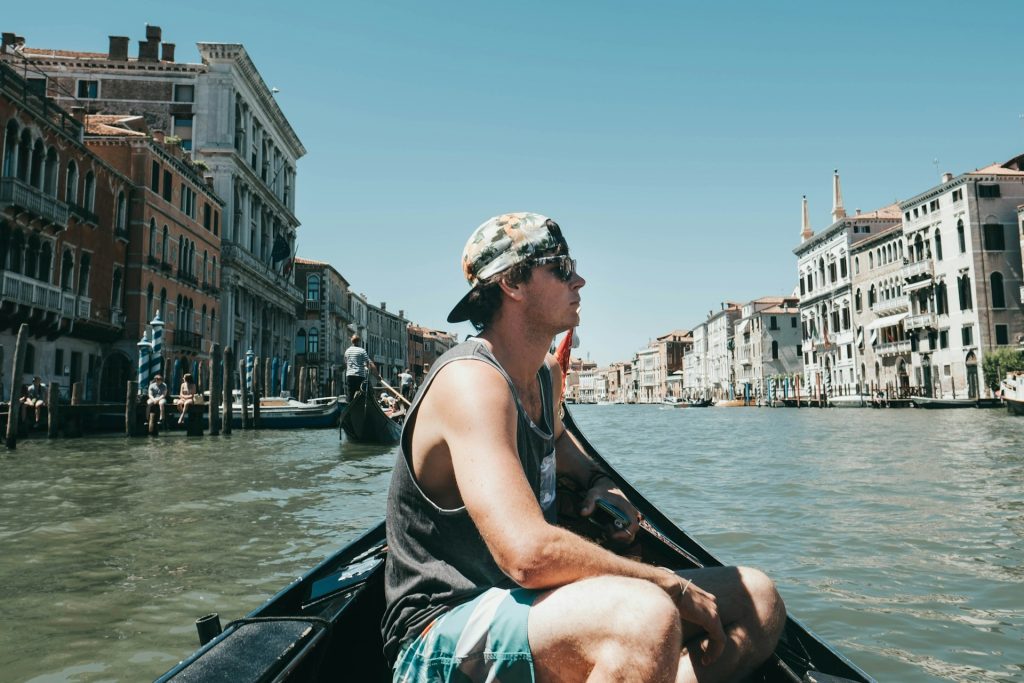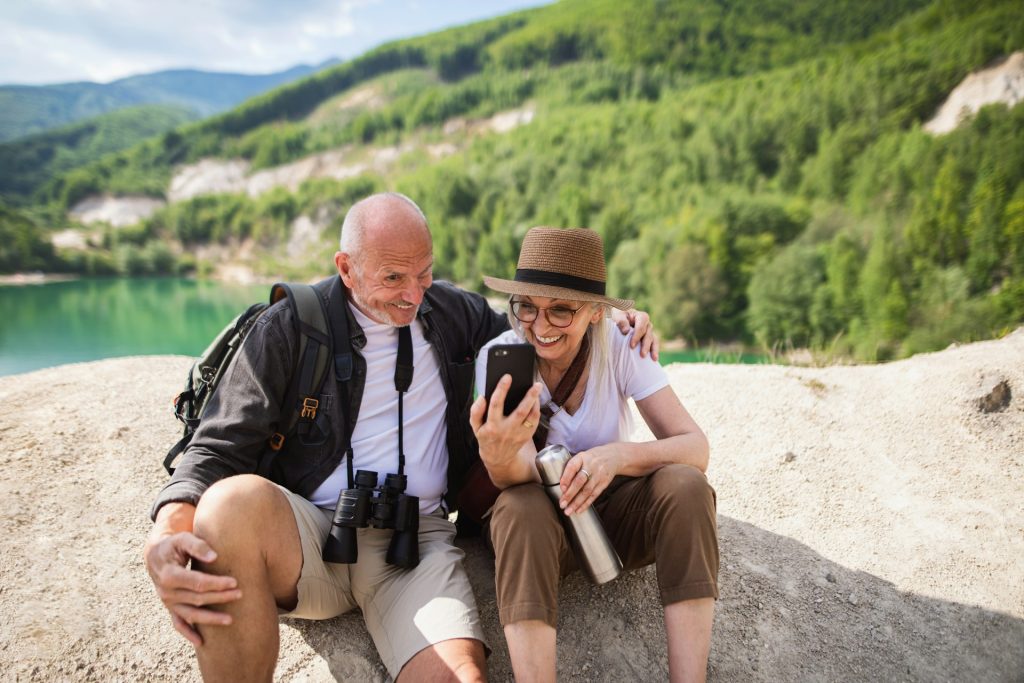Table of Contents
The key to world peace was hidden in a crowded Bangkok street market. Amidst the chaos of haggling voices and sizzling woks, I stumbled upon a universal truth: travel is the ultimate crash course in conflict resolution.
Every journey is an opportunity to hone the art of navigating disagreements, misunderstandings, and cultural clashes. These skills, forged in the crucible of foreign lands, can transform how we handle conflicts in all areas of life.
The Language Barrier: Communication Beyond Words
Nothing tests your conflict resolution skills quite like trying to solve a problem when you don’t speak the local language. It’s frustrating, often comical, but ultimately enlightening.
I once found myself in a heated dispute with a taxi driver in Marrakech, neither of us understanding a word the other was saying. In that moment, I learned the power of non-verbal communication – tone of voice, body language, and facial expressions became our shared vocabulary.
This experience taught me to look beyond words in conflicts back home. Sometimes, what’s not being said is more important than the words themselves.

Cultural Faux Pas: The Art of Graceful Recovery
Travel inevitably leads to moments where you unknowingly offend local sensibilities. These cultural missteps are embarrassing, but they’re also invaluable lessons in how to recover from and resolve conflicts gracefully.
In Japan, I committed the grave error of sticking my chopsticks upright in a bowl of rice – a gesture associated with funeral rites. The horrified looks around me made it clear I’d made a major mistake.
Learning to apologize sincerely, show genuine remorse, and demonstrate a willingness to learn from these mistakes has served me well in resolving conflicts both abroad and at home.
Negotiation Skills: Haggling as Conflict Resolution Training
Haggling in markets around the world isn’t just about getting a good deal – it’s an intensive training ground for negotiation and conflict resolution skills.
My first attempts at bargaining in Istanbul’s Grand Bazaar were disasters. I’d either cave too quickly or push too hard, ending up with either an overpriced souvenir or a disgruntled seller.
Over time, I learned the art of finding mutually beneficial solutions, reading the other party’s needs, and striking a balance between assertiveness and flexibility – all crucial skills in any conflict resolution scenario.
Patience Under Pressure: Dealing with Travel Mishaps
Travel rarely goes exactly as planned. Delayed flights, lost reservations, and missed connections are all opportunities to practice patience and problem-solving under stress.
I’ll never forget being stranded in a tiny Peruvian mountain town when landslides closed the only road out. Instead of panicking, I found myself calmly negotiating with locals to find alternative transport.
Empathy Building: Walking in Another’s Shoes
One of travel’s greatest gifts is the ability to see the world from different perspectives. This expanded worldview is crucial for developing empathy – a cornerstone of effective conflict resolution.
Living with a host family in rural Thailand opened my eyes to a completely different way of life. Their priorities, challenges, and joys were so different from my own, yet fundamentally relatable.
Flexibility: Adapting to the Unexpected
Travel constantly throws curveballs, forcing you to adapt quickly to changing circumstances. This flexibility is a vital skill in conflict resolution, where rigid thinking often leads to impasse.
During a trek in Nepal, our planned route became impassable due to unexpected snowfall. Instead of getting frustrated, our group collaborated to find an alternative path, each person contributing ideas and compromising on preferences.
Active Listening: The Power of Truly Hearing Others
In unfamiliar environments, really listening becomes crucial for understanding and navigating new situations. Travel hones this skill of active listening, which is fundamental to effective conflict resolution.
Participating in a tea ceremony in Kyoto, I learned the importance of being fully present and attentive. The subtle cues and unspoken rituals required complete focus to understand and appreciate.

Emotional Intelligence: Reading the Room Across Cultures
Traveling in diverse cultures sharpens your ability to read emotional cues and social dynamics, even when the usual signposts are unfamiliar.
At a lively family gathering in Italy, I had to navigate complex family dynamics without understanding much of what was being said. I learned to tune into tone, gestures, and subtle interactions to understand the emotional undercurrents.
Stress Management: Keeping Cool in Foreign Lands
Traveling often puts you in stressful situations – from navigating unfamiliar public transport to dealing with lost luggage. These experiences are excellent training for managing stress during conflicts.
I recall a particularly tense border crossing in Central America, where conflicting information and long delays tested everyone’s patience. Staying calm and focused in that situation taught me valuable techniques for managing stress and keeping a level head.
Creative Problem-Solving: Thinking Outside the Box
Travel constantly presents unique problems that require creative solutions. This out-of-the-box thinking is a valuable asset in conflict resolution.
Stranded in a remote area of Mongolia with a broken-down vehicle, our group had to get creative. Using a combination of spare parts, local materials, and some inventive engineering, we managed to get moving again.
Cultural Sensitivity: Navigating Diverse Perspectives
Exposure to diverse cultures through travel develops a deep appreciation for different worldviews and values – an essential foundation for resolving conflicts in our increasingly globalized world.
Participating in a traditional Maori welcoming ceremony in New Zealand taught me the importance of respecting and honoring different cultural protocols, even when they felt unfamiliar or uncomfortable.
Assertiveness: Standing Your Ground Respectfully
Travel often requires you to advocate for yourself in unfamiliar situations, teaching the delicate balance between assertiveness and respect.
Dealing with an aggressive tout in Marrakech, I learned to firmly state my boundaries without escalating the situation. It was a lesson in assertive communication that’s served me well in all kinds of conflict scenarios.
Perspective-Taking: The Long View of Conflict
Extended travel has a way of shifting your perspective, making daily annoyances seem less significant in the grand scheme of things. This ability to zoom out and take the long view is invaluable in conflict resolution.
After spending months backpacking through Southeast Asia, I returned home with a new appreciation for what really matters. Petty disagreements that once would have upset me now seemed trivial in comparison to the broader human experiences I’d witnessed.
This shifted perspective allows for a more measured approach to conflicts, focusing on long-term resolutions rather than short-term victories.
The Art of Compromise: Finding Win-Win Solutions
Travel often involves compromise – whether it’s adjusting plans to accommodate a travel companion or finding middle ground with locals on prices or services. These experiences are excellent practice in the art of finding mutually beneficial solutions.
Planning a group trip through Europe taught me the delicate art of balancing diverse preferences and priorities. We had to find creative ways to ensure everyone got to experience their must-see destinations while keeping the itinerary manageable.

Your Passport to Better Conflict Resolution
Every stamp in your passport is more than just a souvenir – it’s a badge earned in the school of real-world conflict resolution.
The skills honed through travel – empathy, flexibility, creative problem-solving, and cross-cultural communication – are invaluable tools for navigating conflicts in all areas of life. Where will your next conflict resolution training take you?

I’m Simon St John, an editor who thrives on finding the profound moments in travel. With a background in crafting engaging stories for all generations, I delve into both grand adventures and simple discoveries. Through Tripnosis.me, I aim to showcase how travel can be a powerful catalyst for personal growth and deeper connections. My goal is to present fresh narratives that inspire and redefine your travel experience.




